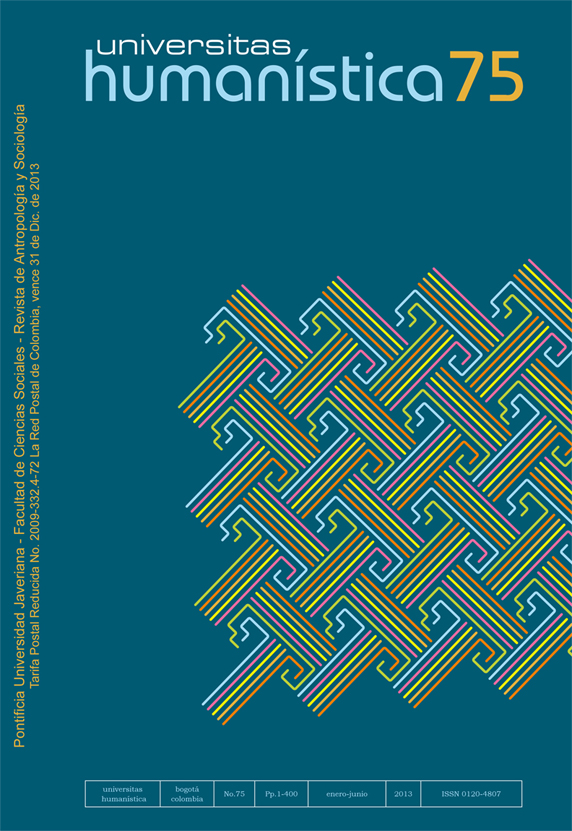Abstract
This article discusses the experience of Victor Daniel Bonilla and Luis Guillermo Vaco,two social scientists in Colombia who, during the 1970s and 1980s created a proposal forethnographic work in conjunction with the indigenous movements in Colombia, from theirwork in the Committee of solidarity with Indigenous Peoples (Comité de solidaridad con lospueblos indígenas). The text proposes an explanation to the question of why this proposalwas rejected and was not developped in the exercise of the anthropological subsequentgenerations. I affirm in this article that the proposal of this group of researchers requiresof joint political construction spaces between the academic researchers and the socialorganizations when their society projects converge, but this requires a prior debate. Thecollaborative research can not exist if there are no articulation spaces that have been builtalong the path of social organizations, nor can be forced to exist outside of them.
This journal provides immediate open access to its content on the principle that making research freely available to the public, encourages greater global exchange of knowledge.
The journal Universitas Humanística is registered under a Creative Commons Attribution 4.0 International Public License. Thus, this work may be reproduced, distributed, and publicly shared in digital format, as long as the names of the authors and Pontificia Universidad Javeriana are acknowledged. Others are allowed to quote, adapt, transform, auto-archive, republish, and create based on this material, for any purpose (even commercial ones), provided the authorship is duly acknowledged, a link to the original work is provided, and it is specified if changes have been made. Pontificia Universidad Javeriana does not hold the rights of published works and the authors are solely responsible for the contents of their works; they keep the moral, intellectual, privacy, and publicity rights.
Approving the intervention of the work (review, copy-editing, translation, layout) and the following outreach, are granted through an use license and not through an assignment of rights. This means the journal and Pontificia Universidad Javeriana cannot be held responsible for any ethical malpractice by the authors. As a consequence of the protection granted by the use license, the journal is not required to publish recantations or modify information already published, unless the errata stems from the editorial management process. Publishing contents in this journal does not generate royalties for contributors.


